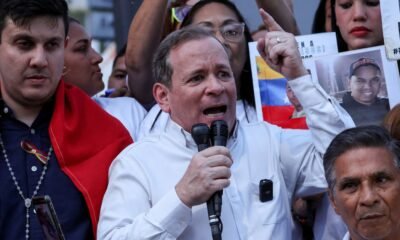INTERNACIONAL
China’s rare earth tech obsession ensnares US resident as CCP looks to maintain stranglehold
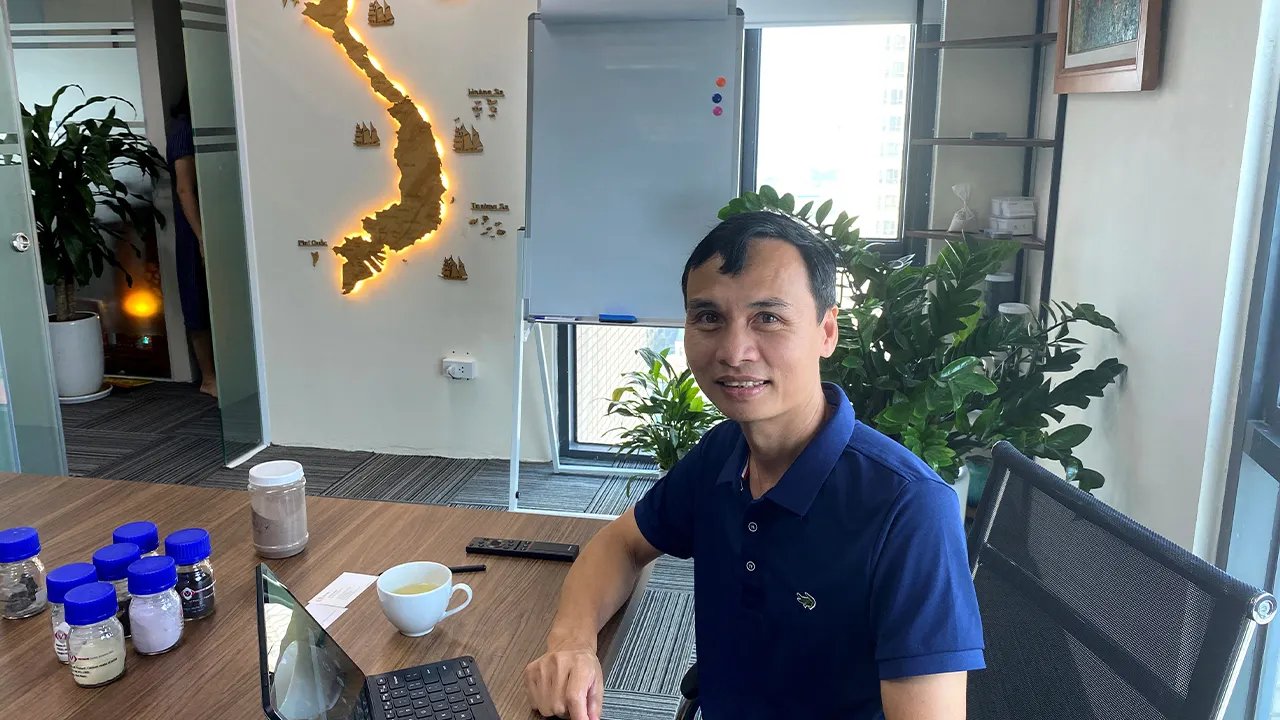
NEWYou can now listen to Fox News articles!
China’s bid to strangle the world’s supply of heavy rare-earth elements was about to hit a wall. Vietnamese entrepreneur Luu Anh Tuan had lined up U.S. backing for a technology that could break Beijing’s chokehold on the critical minerals behind everything from smartphones to missile-guidance systems.
Tuan and his family had fled Vietnam for the U.S. to escape Beijing’s tightening grip over Hanoi, where the Chinese Communist Party exerts a heavy influence on domestic governance.
In July 2023, he signed a technology transfer agreement, seen by Fox News Digital, to bring the heavy rare earth separation technology he was using at his Vietnam-based company, Vietnam Rare Earth (VTRE) to VTRU Corporation, a company registered in Nevada. VTRE had also signed a series of memoranda of understanding (MOU) agreements with Western companies.
«He had a bad sense of insecurity about being in Vietnam. He was determined to transfer his technology to the US as quickly as possible,» a source familiar with the rare earth industry, granted anonymity to speak without fear of retribution, told Fox News Digital.
CHINESE CITIZEN ADMITS STEALING US TRADE SECRETS FOR NEXT-GENERATION NATIONAL SECURITY TECH
Luu Anh Tuan, chairman of mining company VTRE in his Hanoi office with samples of rare earth oxides in Hanoi, Vietnam, Sept. 7, 2023. (Reuters )
At the time, the world was entirely dependent on Chinese companies to separate their heavy rare earth metals.
«China has been really working for the better part of over 20 years now on building this dominance,» Gracelin Baskaran, director of the Critical Minerals Security Program at the Center for Strategic and International Studies, said in an interview.
And while companies like U.S.-based MP Materials and Australia-based Lynas are in the process of developing their own separation technologies, China still controls up to 90% of the rare earths separation and refining capacity and over half of mining output.
In October 2023, Tuan, then a U.S. permanent resident and green card holder in the process of becoming a citizen, was back in his Hanoi office when Vietnamese authorities raided the building, seizing all laptops and records. Seventeen employees were arrested, according to Tuan’s American business partner, Richard Dunham, and all but one, Do Hanh Huong, Tuan’s sister-in-law and COO of VTRE, have since been released.
The arrest came shortly after President Joe Biden visited Vietnam and signed cooperation agreements on rare earth minerals.
CHINA CONTROLS OVER 80% OF BATTERY MATERIALS CRUCIAL TO US DEFENSE EQUIPMENT, UNSETTLING REPORT REVEALS
In December, China banned rare earth extraction and separation, in what the industry saw as another effort to maintain its monopoly on the market.
«When China put in these restrictions, it really made countries like the U.S. and Australia realize that they didn’t actually even have the technical know-how to do it themselves,» said Baskaran.
«The process itself is just very labor-intensive and very toxic,» said Josh Birenbaum, a minerals expert at the Foundation for Defense of Democracies, adding China cornered the market through state subsidies and lax environmental concerns.
While the U.S. has one major rare earths mine, MP Materials’ Mountain Pass, until this year, the company was exporting those rare earths to China for separation. The trade war and export controls that followed prompted the U.S. to stockpile its rare earths until separation capacity was up to scale at home.
Tuan was accused of forging a value-added tax receipt while trading rare earths with Thai Duong Group, which operates a mine in the northern Vietnamese province of Yen Bai.
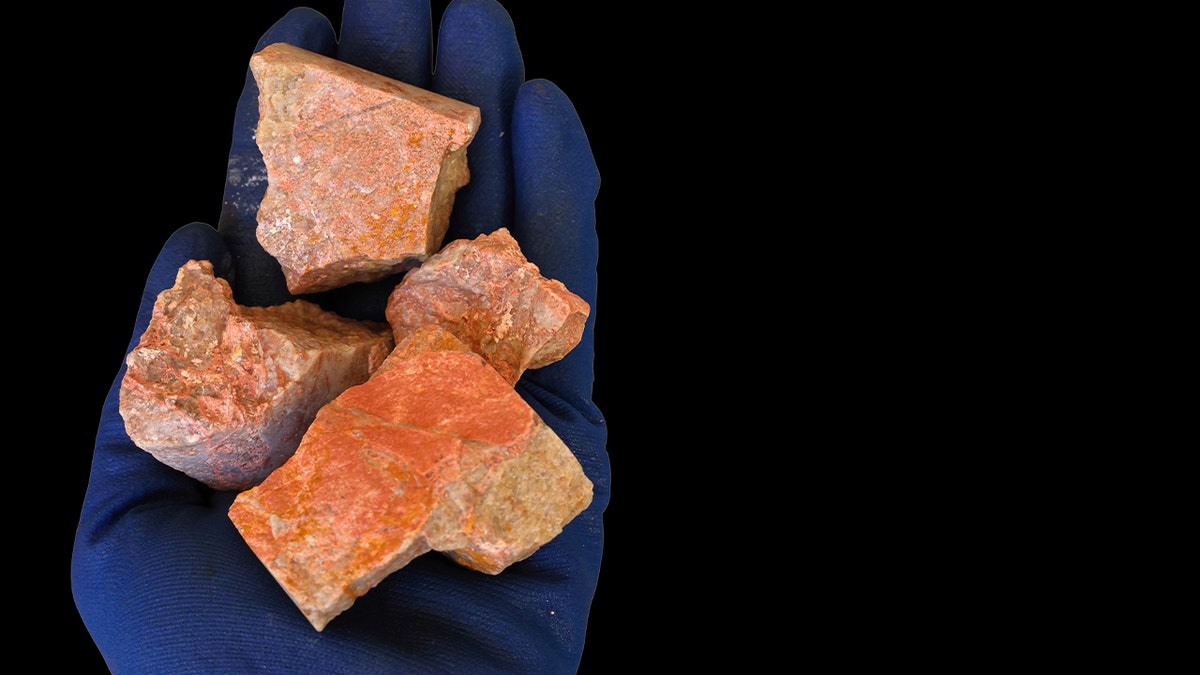
Xenotime ore (Getty Images )
VTRE had partnered with Australian mining companies Australian Strategic Materials and Blackstone Minerals Ltd. Tuan and Dunham had also met with officials from the state of Nevada and the Department of Energy to discuss plans to bring the separation technology to the U.S. through VTRE. Both were «enthusiastic» about the proposal, which ultimately led to the signing of the transfer agreement, according to Dunham.
The arrest also came as Vietnam prepared to auction the Dong Pao mine. VTRE, backed by Western partners, was the only qualified bidder, according to Dunham.
This year, Tuan pleaded guilty in exchange for a lighter sentence. He’ll spend 16 years in prison with a fine of $10 million, but his advocates say he was «coerced.» Huong was sentenced to six years in prison.
«We believe these charges to be manipulated, charges that were founded by Vietnamese state actors who have realigned themselves with China,» said Dunham. «He was tortured to obtain a guilty plea.»
SENATE REPUBLICAN MOVES TO GIVE US AN EDGE ON CHINA IN HARVESTING MINERALS FOR WEAPONS SYSTEMS
Fox News Digital could not independently verify this claim. The State Department documents credible reports of arbitrary arrests, torture and inhumane treatment by authorities, affecting both political detainees and others in custody. Medical neglect and forced confessions are frequently reported.
Tuan’s advocates say the company he was purchasing ore from, Thai Duong, refused to provide invoices at the actual rate VTRE was paying for ore. It only provided invoices that claimed it was selling ore at a lower rate, reducing its taxable income.
According to Dunham, Thai Duong refused to issue invoices reflecting the actual sale price to VTRE, allegedly to avoid environmental, natural resource and corporate income taxes, obligations that fell on Thai Duong, not Tuan.
Tuan was faced with a choice: accept the lower-rate invoices and make up the tax discrepancies with his own money or allow his state-funded minerals project, and in turn, his business, to collapse, per Dunham.
Though Tuan was convicted on criminal charges, Dunham said the violation of accounting regulations lacks evidence of criminal intent.
«Even if he were guilty of an accounting issue, it’s not something that is criminally liable for what they’re trying to do. No place in Vietnam has there ever been an issue with this type of sentencing. It’s totally unheard of. Typically you would pay a fine and that’s it.»
«He is the only individual outside of China that has a fully integrated rare earth company that’s from mining to metallization; in other words, from digging it out of the ground to the manufacturing of magnets.»
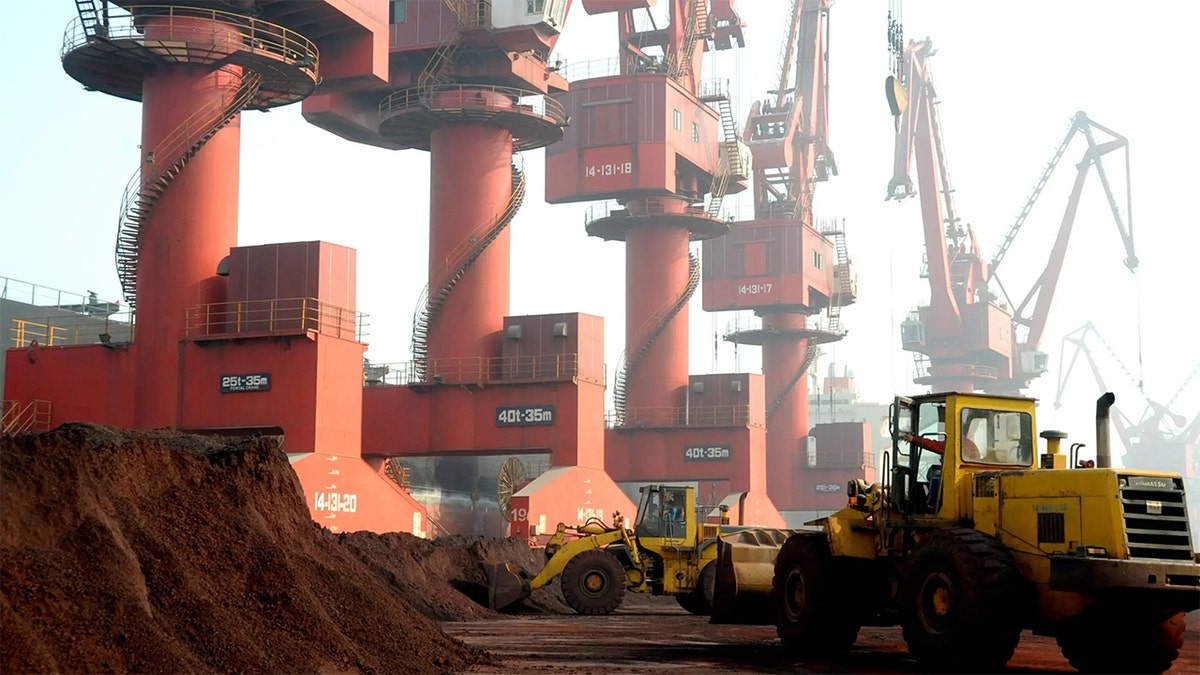
China dominates the global rare earths market. (Reuters)
Tuan was also convicted of smuggling rare earth materials, but customs documents show clearance of 63 shipments of heavy rare earth oxide mixtures under tax code 2846, which corresponds to rare earth compounds. The court misclassified the exports under tax code 2530 (raw ore), to falsely claim they were illegal, according to Dunham.
The Vietnamese Ministry of Public Security’s investigation concluded that customs officers who signed the 63 export declarations for VTRE verified Tuan’s compliance.
China’s crackdown since then has only accelerated. Minerals experts have been ordered to surrender their passports to prevent them from sharing any technology outside the country. Beijing has tightened controls on exports of rare earths, prompting major concerns from within the U.S. defense industry. While China allowed them to flow again during trade negotiations with the Trump administration, they remain banned for defense purposes.
According to Dunham, VTRE has developed the technology to produce heavy rare earth oxides from xenotime, monazite and ion-absorption clay at a purity of 95% through a solvent extraction system. The technology was capable of processing diverse ore types and recycling NdFeB magnets.
Requests for assistance from the U.S. government have not been fruitful, according to Tuan’s advocates.
Tuan is essentially cut off from his family and lawyers. He’s seen family members around five times since his arrest nearly two years ago.
CLICK HERE TO GET THE FOX NEWS APP
«We are deeply concerned about his physical and mental well-being,» the source said. «He is mentally resilient. He continues to believe the truth will eventually come to light.»
Fox News Digital has reached out to the White House, State Department, Chinese Embassy and Vietnamese Embassy for comment.
china,tech,defense,geopolitics,politics,asia world regions
INTERNACIONAL
Hong Kong citó al cónsul panameño por el fallo que anuló la concesión de puertos de CK Hutchison

Medios de Hong Kong y portales en chino reportaron que el gobierno hongkonés convocó al Cónsul General de Panamá en la ciudad, José Ramón de Jesús Varela Fábrega, para expresar su rechazo a la decisión judicial panameña que anuló el contrato de CK Hutchison para operar dos puertos vinculados al tránsito del Canal de Panamá.
Según esos reportes, el encuentro fue encabezado por el Secretario de Comercio y Desarrollo Económico de Hong Kong, Algernon Yau Ying-wah. Yau comunicó una “fuerte insatisfacción” con el fallo. También sostuvo que la medida afecta la confianza de inversionistas. Y que impacta las reglas del comercio internacional.
La citación se produjo después de pronunciamientos difundidos en China sobre posibles “graves consecuencias” para Panamá, en el marco de la reacción por la decisión de la Corte Suprema de Justicia.
En esa línea, autoridades de Hong Kong señalaron que CK Hutchison había realizado inversiones y generado empleos durante años, y reclamaron un entorno de negocios “justo e imparcial” para empresas que operan legalmente.
El planteamiento incluyó una petición para que Panamá respete el “espíritu del contrato” y garantice “trato y protecciones” a compañías de Hong Kong.
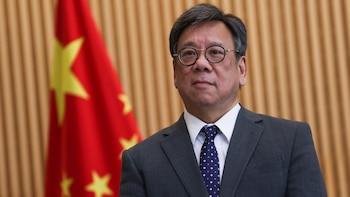
El origen de la controversia está en el fallo de la Corte Suprema que declaró inconstitucional el marco que sostenía la concesión otorgada a Panama Ports Company (PPC), filial de CK Hutchison, para operar los puertos de Balboa (Pacífico) y Cristóbal (Atlántico).
La sentencia anuló el contrato y sus extensiones. El argumento central, según lo reportado públicamente, fue que el esquema otorgaba privilegios exclusivos y exenciones fiscales incompatibles con disposiciones constitucionales.
La concesión se estructuró en 1997 como un paquete que agrupó la operación de ambos puertos bajo un solo operador. Ese diseño —que colocó en un mismo bloque activos en los dos extremos del Canal— es el que ahora el Ejecutivo panameño asegura que no volverá a repetirse.
Tras el fallo, el presidente José Raúl Mulino afirmó que, en adelante, los contratos no se otorgarán a un único operador como un “monopolio” o un esquema de control concentrado. Y anunció que el objetivo es concesionar por separado Balboa y Cristóbal.
En el trasfondo del caso también figura la auditoría impulsada por la Contraloría General sobre la concesión, un proceso que fue parte de la presión institucional para revisar el contrato y sus renovaciones.
La discusión sobre la concesión se mantuvo activa en el país por señalamientos de irregularidades y por el impacto de los beneficios contractuales vinculados a exenciones. Ese proceso alimentó acciones legales que terminaron elevando el caso al máximo tribunal.
En paralelo a la disputa judicial, CK Hutchison mantenía un proceso para desprenderse de activos portuarios, incluyendo los asociados a Panama Ports Company, dentro de una transacción global negociada con un consorcio liderado por BlackRock.
Ese plan incluyó desde el inicio una operación de gran escala que abarcaba decenas de terminales. Sin embargo, la propuesta enfrentó el rechazo de China, que exigió revisiones y objetó la estructura del acuerdo por consideraciones estratégicas relacionadas con la infraestructura portuaria y la cadena logística global.
Luego de ese rechazo, se planteó la posibilidad de incorporar a la naviera estatal china COSCO como parte del consorcio, en un intento por atender las objeciones y destrabar la transacción.
Aun así, el panorama cambió tras el fallo panameño: la venta de los puertos que incluyen Balboa y Cristóbal quedó bajo mayor incertidumbre, mientras se define el alcance práctico de la sentencia, el futuro administrativo de los activos y el nuevo modelo de concesión.
Tras la anulación del contrato, CK Hutchison decidió impugnar el desenlace por la vía del arbitraje internacional, y su filial Panama Ports Company inició procedimientos bajo ese mecanismo. La disputa abre un frente legal que puede prolongarse en el tiempo. Y coloca bajo presión la transición administrativa de dos terminales consideradas parte del engranaje logístico panameño por su rol en el movimiento de contenedores y el transbordo regional.
El presidente Mulino, por su parte, afirmó que la decisión de la Corte es definitiva. Y sostuvo que Panamá no aceptará amenazas de ningún país.
La Cancillería panameña también respondió a las advertencias provenientes de China, en un contexto en el que el gobierno ha insistido en la independencia judicial y en la vigencia del Estado de derecho como marco para la relación con inversionistas y operadores extranjeros.
Dentro del plan de transición anunciado por el Ejecutivo, Mulino indicó que, una vez se concrete la salida de CK Hutchison, el grupo Maersk, a través de su filial APM Terminals, asumirá la operación de forma interina para evitar interrupciones.
Esa administración temporal se mantendría mientras el Estado organiza un nuevo proceso de concesión. Y mientras define el esquema bajo el cual Balboa y Cristóbal se licitarán de manera individual, en lugar de un solo paquete como el de 1997.
El episodio ha escalado a un pulso diplomático y económico donde convergen Panamá, Hong Kong y China, con el componente adicional del arbitraje y la transacción global en la que participan actores financieros y navieros. En el corto plazo, el centro de la discusión está en la implementación del fallo. En el mediano, en el modelo de concesión que sustituirá el esquema anulado. Y en el impacto que la disputa tendrá sobre la continuidad operativa de dos puertos que Panamá considera parte de su plataforma logística.
Corporate Events,South America / Central America
INTERNACIONAL
De redes de pesca a muebles: cómo transformar el plástico oceánico en productos aprovechables

Nueva ola
INTERNACIONAL
Presentan denuncia por presunto maltrato y abuso en albergue en Panamá
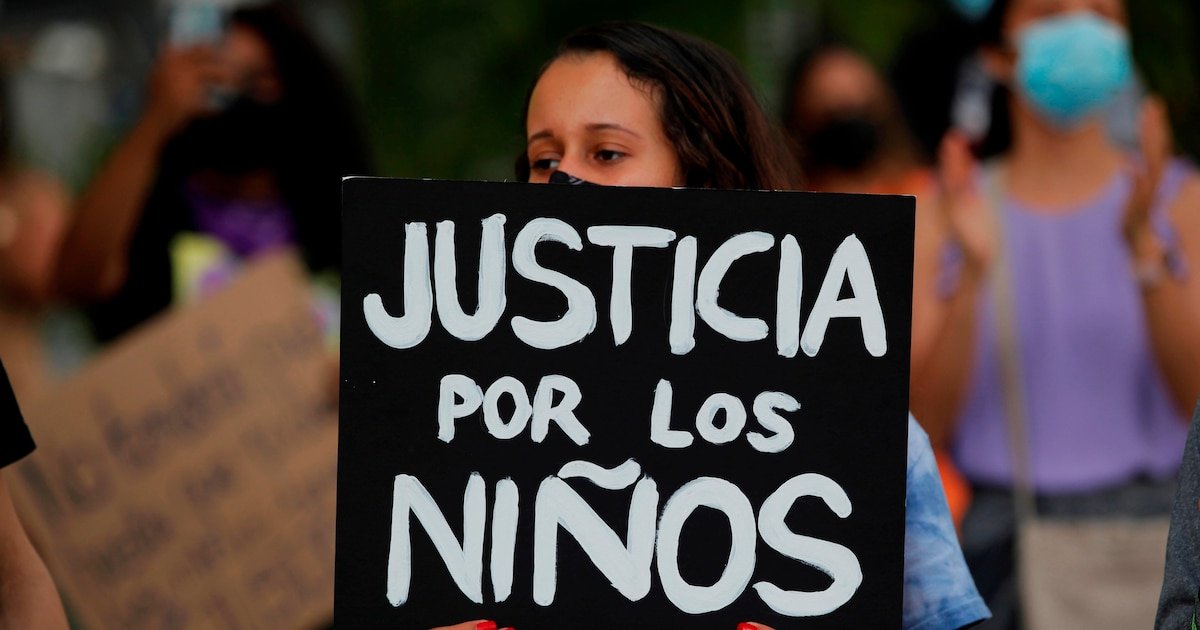
La diputada Alexandra Brenes, presidenta de la Comisión de la Mujer, la Niñez, la Juventud y la Familia de la Asamblea Nacional, presentó una denuncia ante la Procuraduría General de la Nación contra la directora de la Secretaría Nacional de Niñez, Adolescencia y Familia (SENNIAF), Ana Fábrega, y otros funcionarios, por presuntos delitos vinculados a abuso sexual, maltrato a menores e incumplimiento de deberes de servidores públicos.
La acción se produjo tras una visita de inspección realizada por la comisión legislativa al CAI de Tocumen, un albergue estatal ubicado al este de la Ciudad de Panamá. Tras el recorrido, Brenes reportó “irregularidades” relacionadas con el estado de la infraestructura, la falta de personal idóneo y la convivencia de niños, niñas y adultos dentro del mismo espacio, un punto que, según dijo, no se ajusta a estándares de protección.
Brenes sostuvo que la denuncia se fundamenta en correos, informes y reportes internos que, según explicó, ya habían sido enviados a niveles jerárquicos de la institución y advertían sobre presuntas situaciones de negligencia y vulneración de derechos.
La diputada pidió al Ministerio Público “celeridad” en el trámite y llamó a que los funcionarios que conozcan hechos de este tipo denuncien, al advertir que el silencio puede convertirse en complicidad por omisión.
Junto a la diputada compareció César Augusto Pérez, identificado en reportes de prensa como exdirector de Prevención del SENNIAF y encargado del CAI de Tocumen, quien aseguró haber sido separado del cargo por “pérdida” o “falta de confianza” luego de elevar alertas internas sobre supuestas irregularidades.
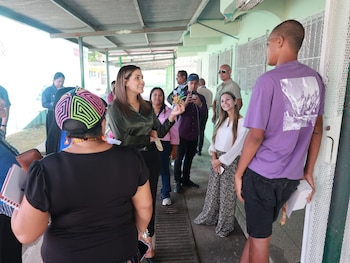
Pérez dijo que sus comunicaciones fueron presentadas “por escrito” y que no buscaban atacar a la institución, sino mejorar condiciones para los menores bajo custodia estatal.
SENNIAF, por su parte, respondió públicamente que la visita de la comisión al CAI se desarrolló con normalidad y conforme a procedimientos establecidos para la protección de niños, niñas y adolescentes.
La entidad indicó que ese tipo de recorridos se han venido realizando desde diciembre, incluyendo inspecciones a albergues privados en Santiago, Coclé y Chiriquí, y que durante el recorrido en Tocumen los diputados fueron acompañados por la directora general, Ana Fábrega, además de personal técnico y administrativo.
En su posición institucional, SENNIAF también recordó que los albergues se rigen por disposiciones específicas de funcionamiento y resguardo, y que las visitas deben coordinarse previamente con listados de visitantes (nombre, cargo e identificación) para las verificaciones correspondientes, priorizando el bienestar y la confidencialidad de los casos y evitando cualquier forma de exposición de los menores.
Mientras avanza el trámite de la denuncia, Brenes anunció que la comisión elaborará un informe con observaciones del recorrido y lo remitirá a las instancias correspondientes, además de enviar notas para que la Comisión de Presupuesto evalúe la situación del centro. La diputada recordó que SENNIAF está adscrita al Ministerio de Desarrollo Social (MIDES) y pidió atención directa al tema.
El caso vuelve a colocar en el debate público el funcionamiento de albergues estatales y los mecanismos de supervisión. En los próximos días, el curso del proceso dependerá de las actuaciones del Ministerio Público y de la documentación que, según la diputada, fue incorporada como sustento de su denuncia, así como de los hallazgos que la comisión legislativa formalice en su informe técnico.
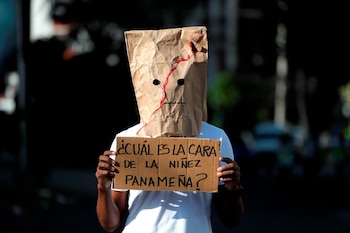
Entre 2021 y 2023 ya se habían conocido alertas e investigaciones vinculadas a irregularidades en albergues supervisados por el Estado y la SENNIAF, que motivaron acciones de control y pronunciamientos públicos.
En febrero de 2021, la Defensoría del Pueblo solicitó a la Asamblea Nacional que se remitieran informes preliminares sobre maltratos a menores en albergues bajo la supervisión de la entidad, lo que dio paso a investigaciones sobre presuntas vulneraciones de derechos en varias instalaciones destinadas a niños y adolescentes.
Un escándalo similar marcó los primeros meses de 2021, cuando un informe parlamentario reveló condiciones “infrahumanas” en centros de acogida para menores supervisados por la SENNIAF, donde se documentaron casos de abusos físicos, sexuales y psicológicos hacia decenas de niños y adolescentes. La comisión legislativa que investigó esos hechos trasladó conclusiones a la Procuraduría General de la Nación para que se abriera una investigación penal, y surgieron cuestionamientos sobre la capacidad institucional para garantizar seguridad y protección en los albergues estatales.
Además, en 2023 la Procuraduría General de la Nación confirmó una condena de 60 meses de prisión a una exfuncionaria de la SENNIAF por el delito de maltrato a un menor en un albergue, como parte de casos que han transitado en el sistema judicial.

 CHIMENTOS2 días ago
CHIMENTOS2 días agoNatalie Weber contó toda la verdad del coqueteo de Sabrina Rojas a Mauro Icardi en un boliche: “Yo sé lo que pasó esa noche y te puedo decir que Sabrina no fue”

 INTERNACIONAL3 días ago
INTERNACIONAL3 días agoTop fiery moments as Democrats clash with Treasury Secretary Bessent in chaotic Hill hearings

 CHIMENTOS3 días ago
CHIMENTOS3 días agoCande Tinelli tiene nuevo novio y casi se matan a piñas con su ex pareja











